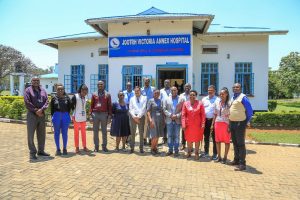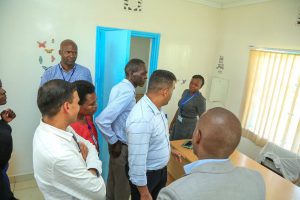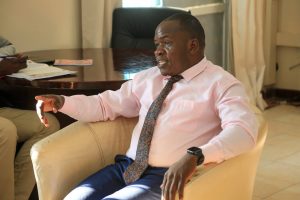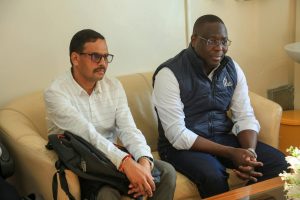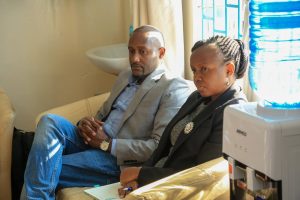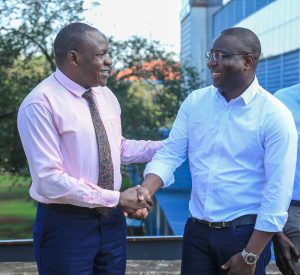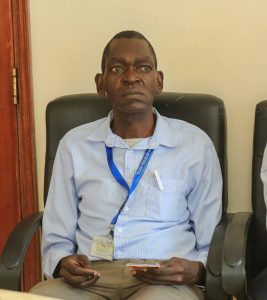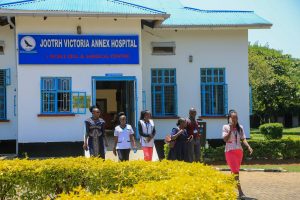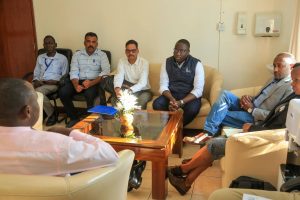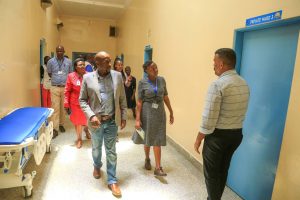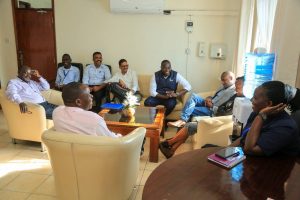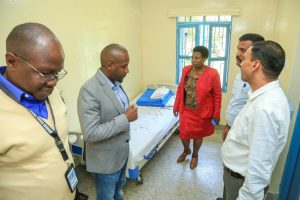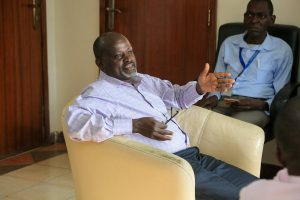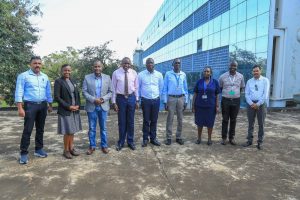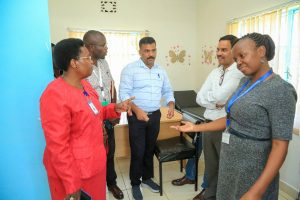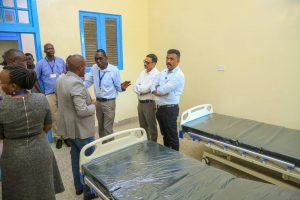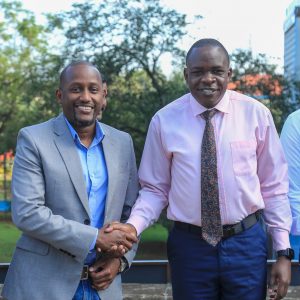Story by Sherine Atieno and Photos by Ondari Ogega
At 32 years of age, Michelle Omulo has lived most of her life battling the challenges of sickle cell disease.
Diagnosed at the age of three, she has grown into not only a survivor but also a voice of strength and resilience for fellow warriors. A filmmaker by profession, Michelle is also a disability inclusion facilitator with Light for the World attached to Hiva Fund, and a chef who leads two community-based groups—Victoria Youth Empowerment and the West Kenya Sickle Cell Organisation. Her life is a testament to determination, even while navigating the daily uncertainties of sickle cell crises.
Michelle, who has been receiving care at Jaramogi Oginga Odinga Teaching and Referral Hospital (JOOTRH) for many years, will be the first patient to benefit from the newly installed apheresis machine at the hospital in partnership with Nairobi West Hospital, starting September 1, 2025. The program, the first of its kind in Kisumu, will provide red blood cell exchange therapy—one of the most effective interventions for managing sickle cell complications.
“I am very excited because I feel like the apheresis machine is going to really reduce the number of crises that we are always having,” Michelle shared. Having suffered two mild strokes linked to sickle cell complications, she is hopeful that the treatment will not only improve her health but also restore her mobility. “I am ready for it. I am grateful to Dr. Joy Muyonga and her team for choosing me to be the first patient.”
For Michelle, the impact goes beyond her own healing. She sees the apheresis program as a beacon of hope for the entire sickle cell community in Western Kenya. “Warriors suffer a lot. They live in uncertainty, not knowing when the next crisis will strike.” This machine will improve the lives of many warriors in the region.
Her message to fellow patients is one of courage and resilience: “We are just like any other normal person. It’s just that we have a blood disorder, but other than that, we are normal. I would urge warriors to be strong and go about your duties like everyone else.”
As Michelle prepares for her treatment, hospital management is equally focused on ensuring everything runs smoothly. Earlier today, the trainers from The Nairobi West Hospital and JOOTRH team conducted a site visit to Victoria Hospital, where the procedures will be carried out. The team finalized logistics, inspected the space, and confirmed readiness ahead of the program launch.
Ag. CEO Joshua Okise assured patients and partners of JOOTRH’s commitment:
“We will give this program our full institutional support to make it effective and sustainable.”
A major pillar of the initiative is blood donation. With red blood cell exchanges requiring consistent blood supply, the hospital is appealing to the public to donate blood generously in order to secure backup for patients beginning treatment.
The milestone will significantly reduce the burden of the disease in the region. Hundreds of warriors and their families are now looking forward to what they believe will be a gamechanger in their quality of life.
Importantly, access to the program will require patients to be enrolled with the Social Health Authority (SHA) and ensure their annual contributions are fully paid. This step is crucial in guaranteeing continuity of care and access to treatment.
For Michelle and many warriors, the coming weeks represent a new dawn. What was once a life of “living in uncertainty” is slowly being replaced with the promise of stability and hope.
